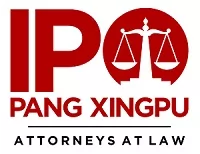When a foreign company establishes a subsidiary, or a factory in China, how the management of the foreign company maintains control of the Chinese entity is an issue that has baffled many management personnel. Failure to maintain control can easily cause the parent company significant financial losses, damage to its reputation, and losses of opportunities to continue operation in China, where the Chinese entity goes rogue and engages in corporate wrongdoings.
For example, recently we have been approached by a client, a German multinational corporation, which sought to conduct an internal investigation of its Chinese subsidiary in Guangdong Province when the client was tipped by a whistleblower of suspicious corporate misconduct by high-level personnel of the Chinese company. We advised the client on the scope of the investigation and tools the client is allowed to employ to conduct the internal investigation within the framework of the data privacy laws of China. As the investigation went deeper and deeper, it revealed that the whole company in China had in effect been taken over by local management, who had been stealing millions of dollars from the company by self-dealing, misappropriation of company funds, and bribery. The entire staff of the company were receiving or forced by the General Manager to receive illicit payments. At the time the client initiated the investigation, it had nobody to trust within the Chinese company.
The client was stumbled by two major obstacles in conducting the internal investigation. First, due to China's increased momentum to enforce data privacy laws since 2016, the client, as a third party, faced many limitations in its authority to legally reviewing financial and human resources records of the Chinese entity. Second, for lack of a robust compliance program implemented in the Chinese company, the client lost control of the company, and was rendered in a powerless position against the local management.
As known by compliance professionals, there is no one-size-fits-all solution for building an effective compliance program to prevent potential corporate misconduct. A compliance program copy-and-pasted from the parent company to be used in its Chinese entity more often than not will not work, because the program has to be accustomed to the Chinese legal, regulatory and business circumstances. However, effective compliance programs share the following elements.
First, the compliance program must provide for zero-tolerance to corrupt practices. The policy shall be explicitly and unequivocally communicated to all employees and management of the company.
Second, there shall be an anonymous whistleblower system in place, such as establishing a direct line of communication between a whistleblower and the parent company with a whistleblower hotline. Further, a bounty program will incentivize those who discern corporate wrongdoing to step up and inform the parent company. The compliance program should also provide for a non-retaliation policy.
Third, mere establishment of a strong compliance program is far from enough. The company shall establish a compliance officer or committee to implement the program. Regular training with signature of attendance by all of the employees and management is essential to the success of the compliance program, because often the wrongdoer engaged in illicit conduct due to ignorance that the conduct is against the law or company policy.
Finally, the company shall provide prompt and efficient responses to reports of non-compliance. When appropriate, the company shall initiate disciplinary or civil actions, or where criminal behavior is involved, assist authorities in prosecuting the crimes.
Apart from the above, routine and periodic outside auditing, sound human resources practices, and regularly updating and improving the compliance program are all essential elements of a strong and effective compliance program. We strongly advise companies to consult legal counsel in establishing and implementing a compliance program.
The content of this article is intended to provide a general guide to the subject matter. Specialist advice should be sought about your specific circumstances.

